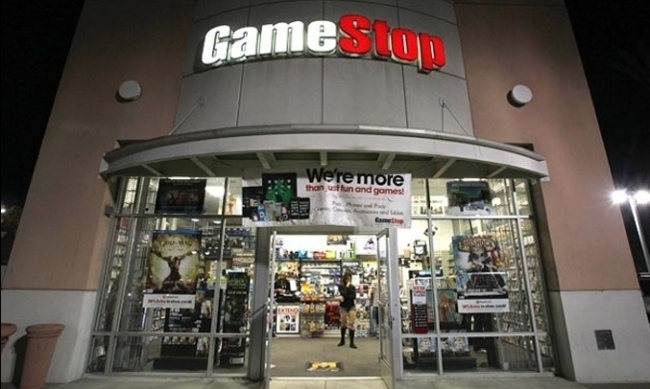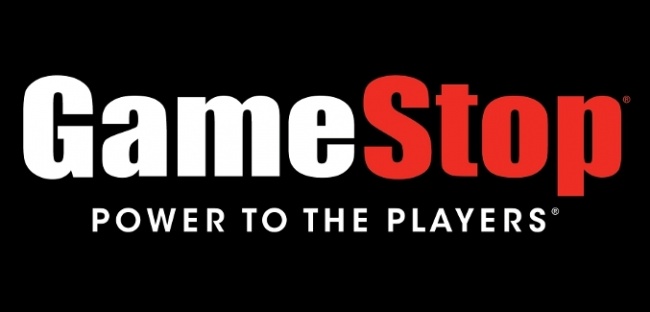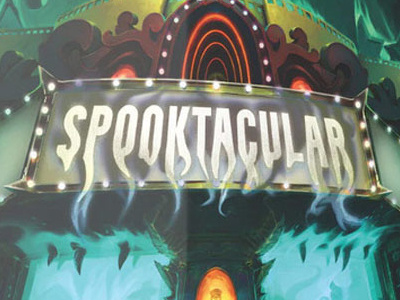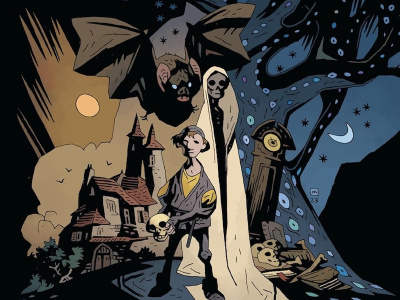GameStop opened 17 more collectible stores (likely in its ThinkGeek format) in the fiscal year ended February 3, bringing the total to 103. The store openings were just part of the continued rotation toward collectibles for the company, which reported its Q4 and fiscal year results on Thursday, and hosted a conference call (via SeekingAlpha).
Collectible sales were up 22.8% to $260.8 for the quarter. For the year, collectibles sales grew 28.8% to $636.2 million, accounting for 6.9% of the company’s sales. That was just shy of the $650 million in sales in the category the company had targeted for the year. The company listed a number of factors that contributed to its growth in collectible sales, including continued expansion of offerings and square footage, promotions during the holiday period, and "unique and exclusive product offerings."
The collectibles growth was part of a generally rosy picture for Q4, which saw sales increase 15% overall and same store sales grow 14.2% in the U.S. on the strength of a solid holiday season (see "Gamestop Holiday Sales Up"). For the year, sales were up 7.2% overall, with U.S. same store sales up 4.3%.
Profits were going to be down anyway, but a $310.9 million net impact from an asset impairment charge exacerbated the problem. The company lost $105.9 million in Q4, and had a profit of $34.7 million for the year, vs. a $353.2 million profit in the previous fiscal year.
The company provided some details on its collectible business in the conference call. Properties called out as especially strong contributors in its fiscal Q4 included Black Panther, Overwatch, and Fortnite. The company’s most popular collectibles category remains Funko POP! Vinyls, where Gamestop is "working to get good exclusives that other retailers don’t carry," Gamestop CEO Michael Mauler said on the conference call. "And we’re able to pre-sell those and they drive a lot of traffic when they launch. It’s almost like a new release."
The POP! Vinyl exclusives are part of a general strategy: not only is the company working to get more exclusives in the coming year, it’s also trying make deals to be first to market on non-exclusive products. Gamestop is also expanding its licensed apparel offerings, where they believe they’re "just scratching the surface" to date. The company had been targeting $1 billion in collectible sales this year (see "Gamestop Converted 200 Stores to Be 50% Collectibles"), but the growth rate will have to go up substantially for that to happen, and momentum is slowing, with lower growth rates over the past few quarters.
The company’s general guidance for the next fiscal year was weak, with same store sales expected to be flat to down 5%, so collectibles will still represent a bright spot in an otherwise challenging environment, as the company tries to adapt to the increasingly download-driven video game software business.

And Sold $636 Million in Collectibles in FY2018
Posted by Milton Griepp on March 29, 2018 @ 4:15 am CT
MORE GAMES
New Board Game by Level 99 Games
August 21, 2025
Level 99 Games will release Spooktacular , a new board game, into retail soon.
In New 'Unmatched' Game
August 21, 2025
Restoration Games will release Unmatched: Bruce Lee vs. Muhammad Ali , a new fighting game, into retail.
MORE NEWS
New Cooperative Puzzle Game
August 21, 2025
HABA USA will release Point of View: Spooky Festival , a new cooperative puzzle game.
ComicHub and BookScan Best-Seller Lists Reveal Diverging Tastes
August 20, 2025
A look at the ComicHub and BookScan best-seller lists shows that comic shop customers are snapping up a wide variety of indy and retro horror.








